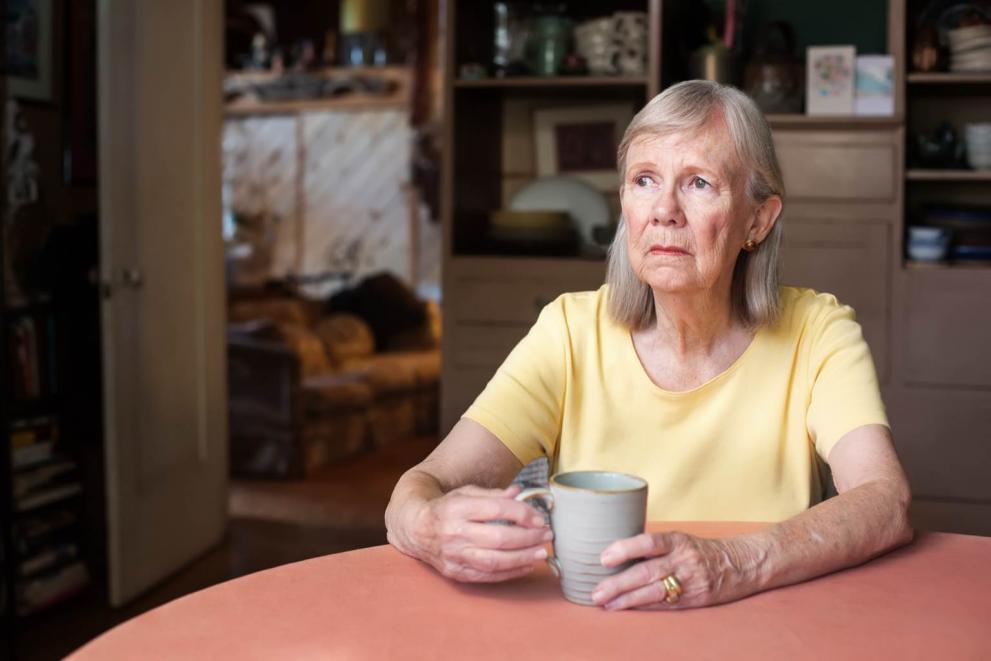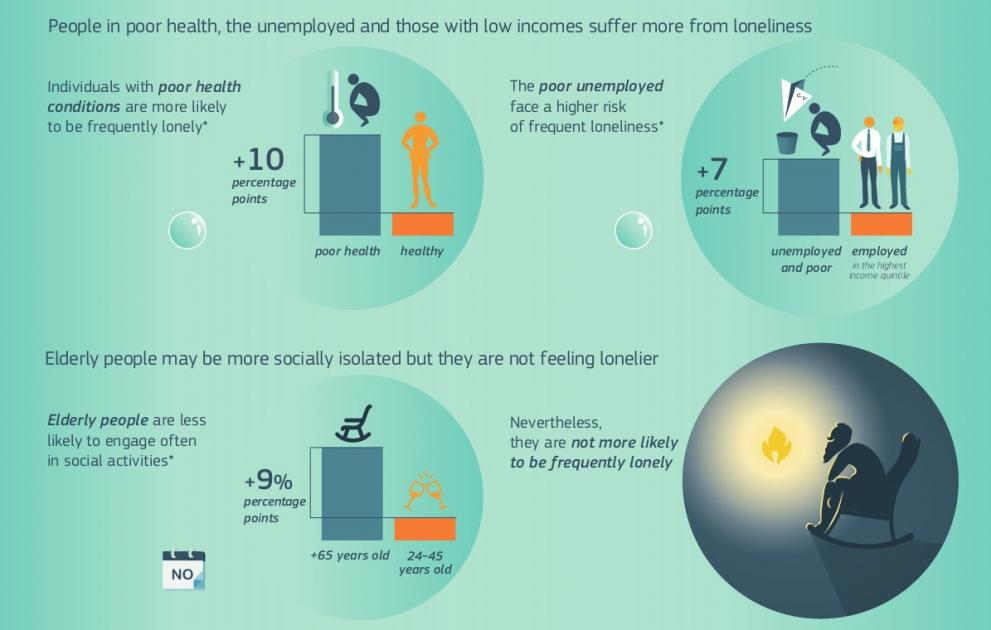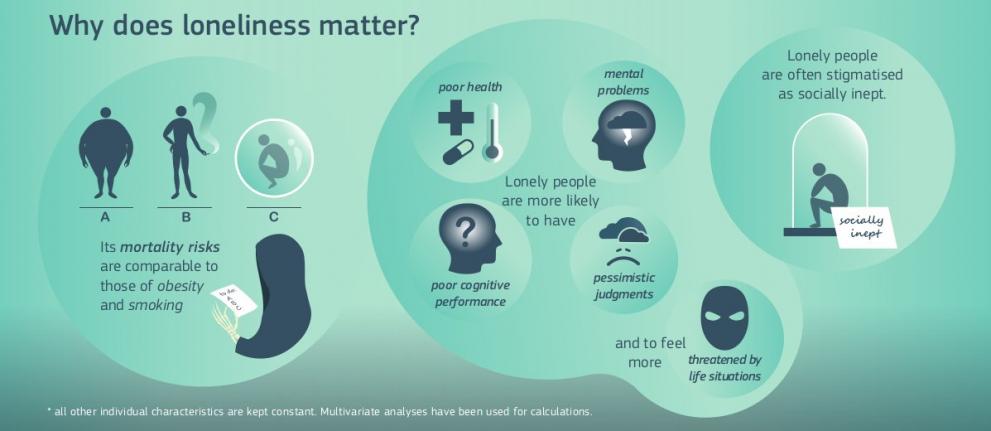
Eastern and Southern Europeans feel lonelier and are more socially isolated than Western and Northern Europeans.
As part of a multi-year research project to analyse different aspects of social fairness, JRC researchers have analysed the incidence and the determinants of loneliness across Europe.
Lonely people are often stigmatised. They are more likely to have poor health and poor cognitive performance, mental problems and pessimistic views. They feel more easily threatened in daily life situations.
Loneliness is associated with a mortality risk equivalent to that linked to obesity and smoking.
How to measure loneliness
The results of the JRC analyses are based on European Social Survey (ESS) data.
JRC researchers looked at two indicators. One indicator is based on subjective feelings of loneliness. It measures the amount of ' lonely individuals', i.e. those who report feeling lonely.
The second indicator is based on specific determinants of loneliness such as the frequency of meetings with friends. It measures the number of 'socially isolated individuals', i.e. those who meet with friends, relatives or work colleagues (outside work) only once per month or less.
7% of adults in Europe feel lonely
According to this analysis, around 30 million European adults (7%) frequently feel lonely.
This number goes up to 10% in Hungary, the Czech Republic, Italy, Poland, France and Greece.
The lowest share of people who feel lonely is found in the Netherlands and Denmark (3%), Finland (4%) as well as Germany, Ireland and Sweden (5%).
18% of adults in Europe are socially isolated
If only 7% of adults in Europe feel lonely, the analysis shows that many more adults in Europe (18% or around 75 million people) are in reality socially isolated.
Differences between countries are also much larger in this area than for subjective loneliness.
Over 40% of Hungarians and Greeks only socialise with friends or family once a month or less. In Lithuania, Estonia and Poland the figure approaches 35%.
At the other end of the spectrum, social isolation is lowest in the Netherlands, Denmark and Sweden, were around 8% of adults only meet with friends or family one per month or less.

People in poor health and the unemployed suffer more from loneliness
People in poor health, the unemployed and those with low income suffer more from loneliness.
Individuals with poor health conditions have a 10% higher risk of feeling lonely than persons who are healthy. Being unemployed increases the risk by 7%.
Loneliness affects all age groups, from children to the elderly.
Elderly people are less likely to engage in social activities.
However, although elderly people are more socially isolated, they do not feel lonely as often as those belonging to the 26-45-year age group who share the same background factors (health status, family status etc).

Preventing loneliness
Loneliness as a social problem has entered the political and social debate only recently.
The extent of loneliness described in the JRC analysis suggests that this significant social phenomenon should be addressed in the context of social inclusion and taken into account in measures aiming to improve social well-being.
Designing effective measures to combat loneliness will require better understanding of the underlying drivers of loneliness.
More effort could also be given to assessing the impact of interventions targeting lonely people.

Related Content
Loneliness infographics (PDF)
Science for policy briefs: Loneliness – an unequally shared burden in Europe (PDF)
Details
- Publication date
- 12 June 2019
